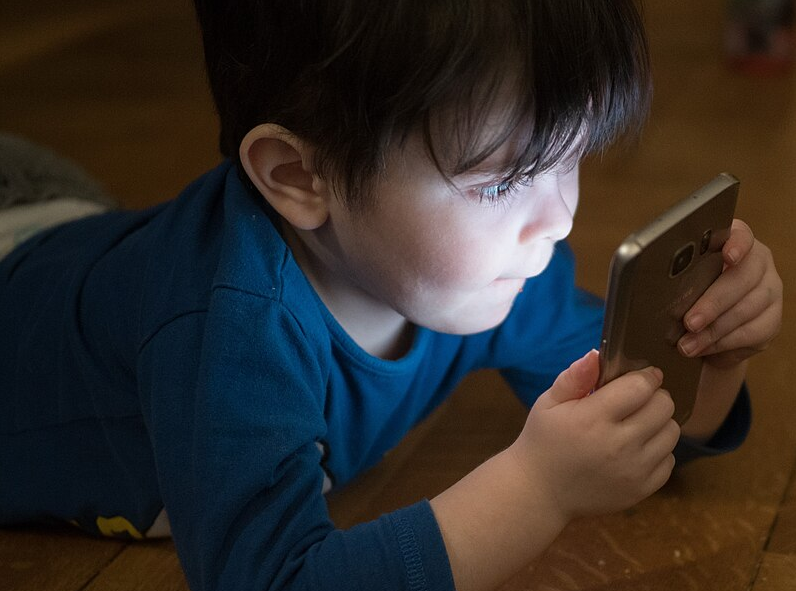There’s growing outcry among parents and grandparents in the United States against entities threatening the innocence and well-being of children. Parents are particularly sick and tired of technology companies and the pornography industry pursuing impressionable children as a profit target.
A recent U.S Senate hearing with Big Tech CEOs revealed how social media companies frequently program their platforms to be habit-forming, taking maximum advantage of vulnerable populations. The hearing exposed how certain platforms have knowingly facilitated child sexual exploitation, child sexual abuse material, and even pedophile rings.
Likewise, pornographers have devised many devious methods to attract unsuspecting children to highly addictive material. Whether it’s splicing pornography into the middle of cartoons on Kids YouTube, creating XXX websites with child-friendly names, or vehemently avoiding any type of age verification to enter their “adult” websites, the pornography industry intentionally strives to be a magnet for young children. And if that was not bad enough, the largest pornography platform in the world, Pornhub, is under fire for knowingly profiting from child sexual abuse, torture, and rape of minors.
All these injustices fly in the face of our existing state and federal obscenity laws which have long prohibited exposing children to obscene material. Moreover, in 2020, Alabama became the 16th state to pass a Resolution Declaring Pornography a Public Health Crisis. As a state, Alabama has officially acknowledged the extensive research revealing the damaging effects of today’s internet pornography to the developing brain, to relationships, and to society.
Nearly 50% of young children are accidentally exposed to pornography on smartphones and tablets, studies show. Fortunately, there are practical and effective legislative actions we can take to create wide-scale change.
What if I told you that a simple software update could better protect hundreds of thousands of young children in Alabama from early, accidental exposure to this addictive material on smartphones and tablets? What if a simple software update could raise a higher standard of care and provide an instant layer of protection to vulnerable kids? Well, good news! It can!
This legislative session, State Rep. Chris Sells (R-Greenville) and State Sen. Clyde Chambliss (R-Prattville), with roughly 60 bipartisan cosponsors, are working to advance the Alabama Children’s Device Protection bill, HB 167. This popular bill recently passed the Alabama House 98-0 and we hope to see it quickly progress in the Senate during the remaining days of the session. HB 167 would require device manufacturers like Apple, Google, and Amazon to simply turn existing adult content filters “on” upon activation of a minor’s smartphone or tablet in the state of Alabama. Parents would be given a passcode to deactivate the filters if they chose, but children would have a very needed automatic layer of protection from early, accidental exposure to violent, hardcore pornography.
As adults, we want to make things as safe as possible for children. This is why medicine bottles are difficult to open and why we require seatbelts and booster seats in cars. You wouldn’t expect a car dealership to sell you a vehicle with the seatbelt stored in the trunk. You would expect the safety features to be active and viable. Safety features already exist on smartphones and tablets, but they are buried deep in the settings and require up to 30 steps on some devices to properly activate.
The Children’s Device Protection Bill greatly simplifies what is now a complex and cumbersome process for families, providing children who do not have involved caregivers with better odds of protection during their most vulnerable developmental years.
HB 167 is constitutionally sound and has Supreme Court backing. The bill does not hold retailers or telecommunications companies (like Verizon or ATT) liable, and it has no impact on commerce in Alabama. Activating existing filters will not restrict access to educational content. This bill is surgical, technical, and simple, but it has widespread and automatic benefits to the most vulnerable among us.
HB 167 cannot prevent all forms of digital harm, but it will definitely raise a new expectation of protection and a higher standard of care for minors. Although HB 167 has seen tremendous success in the House, we still face opposition from lobbyists representing the interests of Big Tech and the pornography industry. Last year, although this bill had overwhelming bipartisan support, it was blocked from the final vote because key leaders in the Senate caved to pressure or promises from the opposition.
Please urge your senator to prioritize the safety and well-being of Alabama’s children above Big Tech’s profits. We can demand a safer online environment for our children. HB 167, the Children’s Device Protection Bill, is a strong and effective step in that direction. To easily send a letter directly to your senator, please add your name to our petition.
Melea Stephens is a practicing marriage and family therapist in Alabama and a board member of the National Center on Sexual Exploitation.
The views and opinions expressed here are those of the author and do not necessarily reflect the policy or position of 1819 News. To comment, please send an email with your name and contact information to Commentary@1819News.com.
Don't miss out! Subscribe to our newsletter and get our top stories every weekday morning.










